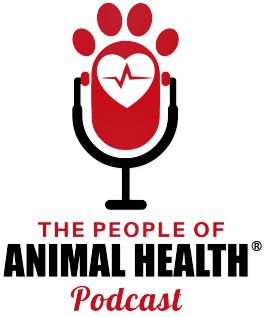The world of Veterinary medicine is always evolving, with advancements in medical techniques, technologies, and treatments constantly emerging. For professionals, students, and enthusiasts in the field, staying updated is not only valuable—it’s essential. One increasingly popular way to stay informed, entertained, and inspired is by listening to Veterinary podcasts. These podcasts, available across various platforms, allow veterinarians and animal health professionals to engage with their community, learn from top experts, and keep up with industry trends on the go. But what makes certain Veterinary podcasts stand out?
Here’s a closer look at the shared qualities of the best Veterinary podcasts and how these qualities make them indispensable resources for listeners.
1. Relevant and Practical Content
The best Veterinary podcasts offer information that is directly relevant and applicable to the day-to-day challenges faced by animal health professionals. Whether it’s discussing the latest clinical breakthroughs, diving into case studies, or exploring best practices for patient care, these podcasts deliver content that listeners can immediately put into practice.
Real-World Applications: Rather than just discussing theories, top podcasts emphasize practical advice. Episodes might focus on treating specific diseases, managing animal behavior, or handling challenging cases. For example, a podcast episode might delve into managing anxiety in dogs, including case examples and step-by-step advice for veterinarians to use in their practice.
Guest Experts: To bring this practicality to life, the best shows invite experienced Veterinary professionals, including specialists, researchers, and educators, who share tips and insights from their careers. By bringing in experts, podcasts can delve into highly specialized topics, such as equine medicine, exotic animal care, or Veterinary pharmacology, while making the information accessible.
2. Emphasis on Continuing Education
Many of the best Veterinary podcasts recognize the importance of continuing education (CE) for their audience. The top shows often go beyond simple conversation to provide detailed insights into new medical procedures, research findings, and trends in the field.
CE-Creditable Episodes: Some podcasts offer episodes that qualify for continuing education credits. This is a big draw for professionals who are required to earn CE credits each year, as they can listen to episodes while commuting or between appointments. These CE-focused episodes usually come with supplemental materials or quizzes to ensure comprehension and retention.
Focus on Emerging Trends: Veterinary medicine is constantly changing, with advancements in diagnostics, treatment, and technology. The best Veterinary podcasts highlight these trends, offering listeners information on everything from artificial intelligence in diagnostics to new pain management approaches. By staying up-to-date with these trends, listeners can better position themselves as knowledgeable and innovative professionals in their workplaces.
3. Strong Storytelling and Engaging Format
One of the most captivating aspects of the best Veterinary podcasts is their storytelling. While Veterinary medicine is a science-based field, storytelling makes complex topics more relatable, memorable, and enjoyable to listen to.
Patient Case Stories: Many popular podcasts will feature real-life case stories from veterinarians, creating a narrative that holds the listener’s attention. A veterinarian might recount the story of a difficult surgery, a mysterious diagnosis, or a memorable animal patient. These stories not only entertain but also teach, as listeners gain insights into diagnostic processes, critical thinking, and problem-solving skills.
Interviews with Passionate Professionals: A hallmark of engaging Veterinary podcasts is that they feature guests who are genuinely passionate about their work. Listening to someone describe their career path, triumphs, and challenges can be inspiring for young veterinarians and students. These guests often share practical wisdom and career advice that resonates deeply with listeners, making episodes both informative and motivational.
Variety in Format: While some episodes are interview-based, others might include panel discussions, listener Q&A, or in-depth monologues on specialized topics. This variety keeps the podcast fresh, and it allows hosts to cover topics in different ways, appealing to different types of learners.
4. Focus on Mental Health and Work-Life Balance
Veterinary medicine is a demanding profession, often associated with high levels of stress, compassion fatigue, and burnout. The best Veterinary podcasts address these issues, providing a safe space for conversations around mental health, self-care, and work-life balance.
Discussions on Burnout: The best Veterinary podcasts recognize the challenges of working in a high-stress field and provide actionable advice on coping with burnout. These episodes might feature mental health professionals, experienced veterinarians, or even people who have left clinical practice to discuss strategies for resilience, self-care, and maintaining a healthy perspective.
Community and Support: Many podcasts in this field foster a sense of community by openly addressing the emotional and psychological toll of the job. Listeners can hear from others who have faced similar struggles, and by normalizing conversations around mental health, these podcasts help reduce the stigma associated with seeking support.
Career Flexibility and Transition Advice: For veterinarians considering a career change, some podcasts offer advice on alternative career paths within animal health, such as working in industry, research, or education. This helps listeners who may feel trapped in clinical practice see new possibilities and gain insights into different ways to use their skills and passion for animal care.
5. Clear and High-Quality Audio Production
Technical quality is a significant factor in the success of any podcast. Veterinary podcasts that prioritize high-quality audio production are easier and more enjoyable to listen to, which keeps their audience coming back.
Professional Sound Quality: The best podcasts invest in good microphones and editing software, ensuring that sound quality is clear and free from distracting background noise. Since many listeners tune in during commutes or while multitasking, poor audio quality can detract from the experience and may even make it challenging to follow along.
Structured Editing and Format: High-quality podcasts follow a structured format, with smooth transitions and focused discussions. Hosts and producers carefully edit episodes to ensure that discussions are concise and engaging, removing unnecessary tangents or filler content. This structure reflects respect for the listener’s time, allowing them to get valuable insights in a short amount of time.
6. Strong Hosts and Authentic Personality
A charismatic and knowledgeable host can make all the difference in a podcast. The best Veterinary podcasts have hosts who are not only experts in their field but also personable and engaging.
Relatability and Authenticity: Great hosts understand the unique challenges and joys of Veterinary medicine, which helps them build a connection with their audience. Their empathy and authenticity create a welcoming atmosphere that makes listeners feel understood and valued. This rapport is essential, as it helps build trust and encourages regular listening.
Balanced Tone and Energy: The best hosts balance a professional tone with a conversational style, making complex information accessible without being overly formal. They know when to lighten the mood with humor or share personal stories that make listeners feel like they’re having a conversation with a friend rather than listening to a lecture.
Ongoing Engagement with Listeners: Top podcast hosts also engage with their listeners outside the show by responding to questions on social media, conducting live Q&A sessions, or encouraging listener feedback. This two-way interaction creates a strong sense of community and makes listeners feel like active participants rather than passive consumers.
7. Diverse Topics and Inclusive Perspectives
Veterinary medicine encompasses a wide range of specialties, species, and career paths, and the best Veterinary podcasts reflect this diversity in their topics and guest selection.
Broad Range of Topics: Leading podcasts cover a wide array of subjects, from common pet health issues to specialized topics like wildlife conservation, exotic animal care, and Veterinary research. This diversity ensures that listeners from various backgrounds and specialties can find content that is relevant and interesting.
Inclusive Voices: Veterinary podcasts that include voices from underrepresented groups, such as women, minority veterinarians, and professionals from different geographical regions, provide richer, more inclusive perspectives. By featuring diverse guests, these podcasts allow listeners to gain a more comprehensive understanding of the field and appreciate the different ways Veterinary medicine impacts communities worldwide.
Global Issues in Animal Health: Some podcasts also go beyond clinical practice to discuss larger issues such as animal welfare, environmental conservation, and the human-animal bond. These broader discussions help listeners appreciate the interconnectedness of Veterinary medicine, society, and the natural world.
If you’re passionate about animal health, enjoy hearing stories from the field, and want to stay on top of the latest trends and insights in Veterinary medicine, The People of Animal Health Podcast is for you. This show brings together top experts, fascinating case stories, and the wisdom of seasoned professionals, all wrapped in an engaging and informative format.
Subscribe to The People of Animal Health Podcast today and become part of a community that celebrates the people behind the profession. Listen now and start your journey toward staying informed, inspired, and connected in animal health!

